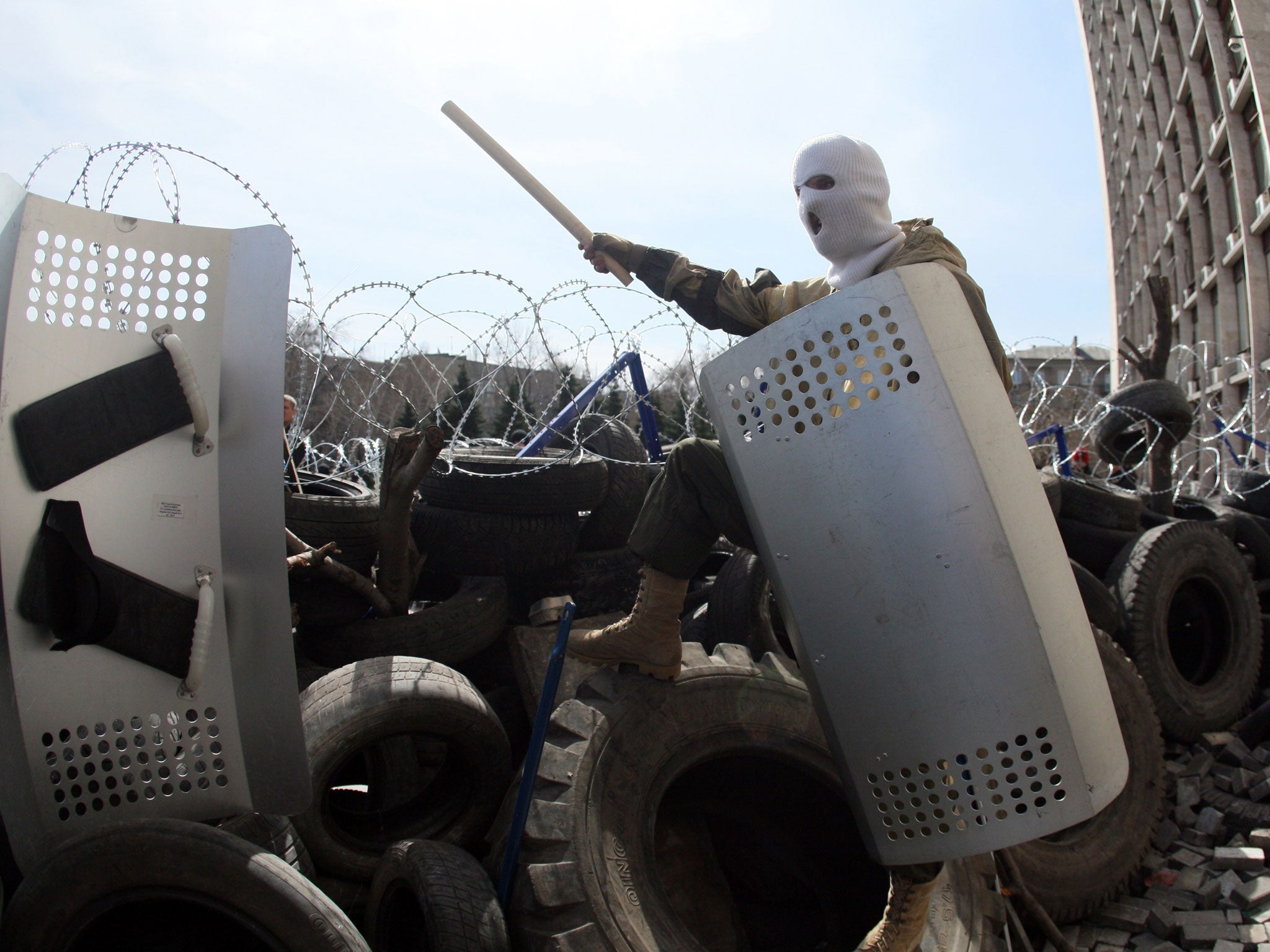The power of Kiev and the West is sinking fast in uncharted waters
While the West focuses on forces deployed on Ukraine’s borders, Russia has been invading the country by stealth

Your support helps us to tell the story
From reproductive rights to climate change to Big Tech, The Independent is on the ground when the story is developing. Whether it's investigating the financials of Elon Musk's pro-Trump PAC or producing our latest documentary, 'The A Word', which shines a light on the American women fighting for reproductive rights, we know how important it is to parse out the facts from the messaging.
At such a critical moment in US history, we need reporters on the ground. Your donation allows us to keep sending journalists to speak to both sides of the story.
The Independent is trusted by Americans across the entire political spectrum. And unlike many other quality news outlets, we choose not to lock Americans out of our reporting and analysis with paywalls. We believe quality journalism should be available to everyone, paid for by those who can afford it.
Your support makes all the difference.If an interim report card is needed on the Ukraine crisis, yesterday’s proclamation of a Donetsk People’s Republic will suffice. The weekend’s events reveal four unpalatable truths.
First, they show that the authorities in Kiev do not control the country’s territory. This is not because eastern and southern regions have risen up against an ‘illegitimate’ government, but because a still disorientated government is failing to gain the upper hand over an externally led insurgency. Penetration by Russian agents (and finance) has rendered local police and security services largely unfit for purpose. Years of lucrative collaboration between criminal structures, the Yanukovych ‘family’ and Russian security services have eroded the networks of administration. Ukraine’s Border Guard Service now turns away 400 Russian ‘tourists’ daily.
At the same time, local attitudes belie Moscow’s description. According to a poll taken in December, only 8.9 per cent of residents supported amalgamation with Russia, 9 per cent of residents in the east favoured an independent state, and only 23 per cent favoured federalisation. A March 2014 poll is less conclusive, but supports other evidence that views about Russia are worsening.
Second, the weekend’s drama is a reminder that while the West focuses on the forces deployed on Ukraine’s borders, Russia has been invading the country by stealth. Russia has built up an impressive regional intervention capability. But it is two capabilities in one: visible and covert. To Georgia, Moldova and the Baltic states, this is not news. But it is in much of Nato.
Third, the events show that neither Western sanctions nor diplomacy have managed to arrest Moscow’s efforts to render Ukraine ungovernable. If elections cannot take place in Donetsk, Kharkiv or Luhansk on 25 May, they will not be national elections. An ‘illegitimate’ government will therefore have no means of legitimising itself.
Fourth, they reinforce that we are entering uncharted waters. For 22 years, Russia has openly linked its own security with the limited sovereignty of its neighbours and has designated its ‘compatriots’ abroad an ‘instrument’ of policy. But annexation sets a new precedent, and Putin’s desire to restore ‘historic Russia’ opens a new chapter, particularly for those with Crimeas of their own.
The judgement of Russia’s impressive expert community is telling. Some believe the West’s response too hesitant and inconsistent to deflect Putin from his course. Others believe that, whatever the West’s response, he will ‘refuse to lose’.
James Sherr is an Associate Fellow of Chatham House and the author of ‘Hard Diplomacy and Soft Coercion’
Join our commenting forum
Join thought-provoking conversations, follow other Independent readers and see their replies
Comments